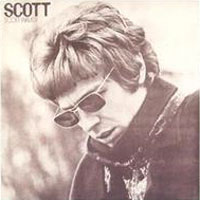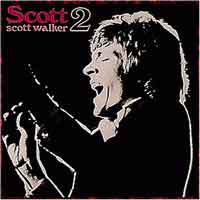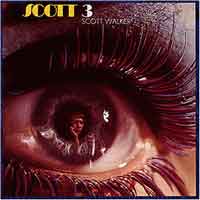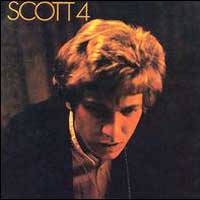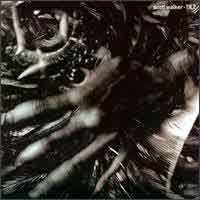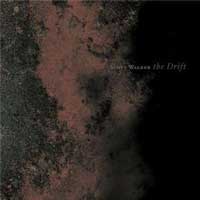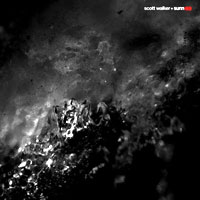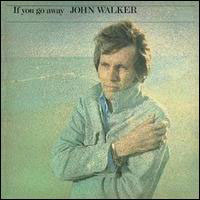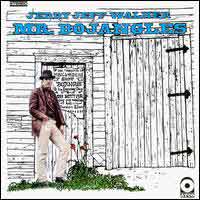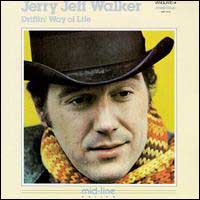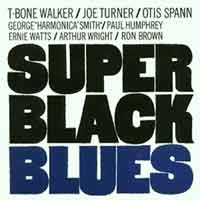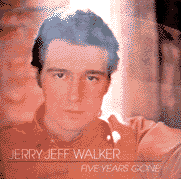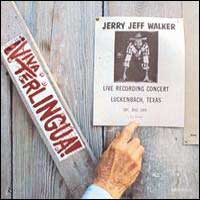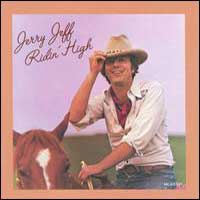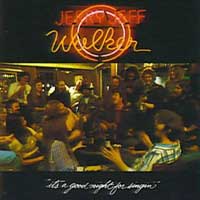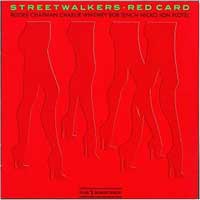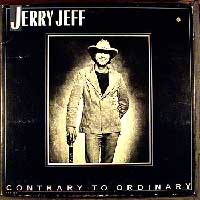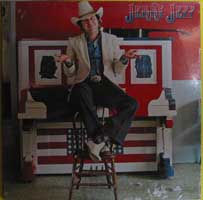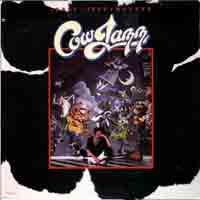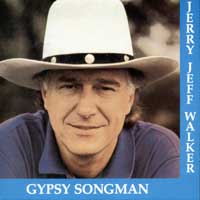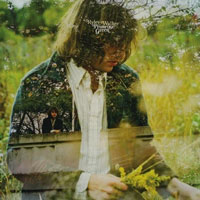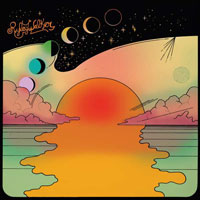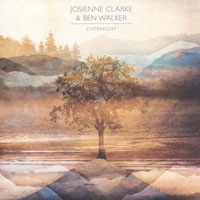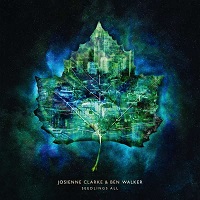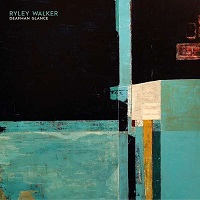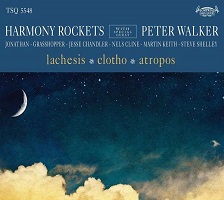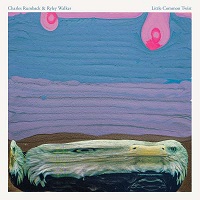Walker's only album of the 1980s was both a blow for artistic credibility, and a blow against most of his old fans. The voice of the balladeer was still intact, and still even crooned sometimes. But the arrangements backed brow-furrowing, obtuse lyrics with '80s-oriented rock that incorporated some quasi-classical structures. Walker was seemingly more interested in painting abstracts in which the textures counted more than the content. This made for an album which may have been a hell of a lot more interesting than '80s efforts by other '60s pop stars, but at the same time it was rather impenetrable, and one's attention tended to drift off over the course of the set. Yet it was not half as radical as the avant-garde direction he would stake out with his next album ten years later, Tilt.
(by Richie Unterberger, All Music Guide)
'Climate of Hunter' was Scott Walker's sole-release in the 1980s, continuing the directions suggested by Scott's contributions to the final Walker Brothers LP 'Nite Flights' (1978). 'Nite Flights' saw Walker compose again for the first time since flop 'Til the Band Comes In' - the interim seeing inept cover versions ('Many Rivers to Cross' anyone???), flop solo albums, and the reformation of the Walker Brothers - who went from truimphic return with 'No Regrets' to off the register with follow-ups 'Lines' and 'Nite Flights'. Walker's writer's block ended with the four songs on 'Nite Flights', whichmore… were probably closer to Bowie than Walker of old ; the terrifying composition 'The Electrician' spelt out the future, Walker making avant-pop with sinister themes (the torture apparent in that song is continued to 'Dealer' here, and features on 1995's masterpiece 'Tilt'). A listen to 'Nite Flights' or 'The Electrician' is the ideal preperation for 'Climate of Hunter' - which is an overlooked album that might even make 'Tilt' make sense to those otherwise confounded. After reportedly turning down offers to work with Bowie, Eno and David Sylvian (there is a rumour that Walker began to record with Eno, but halted proceedings over Daniel Lanois' hair!!!!) Walker recorded his sole album for Virgin. As 'Tilt' it is produced by Peter Walsh (previously known for Simple Minds' pop-classic 'New Gold Dream, 81, 82, 83, 84') and features a collaboration with Brian Gascoigne who would contribute heavily towards 'Tilt.''Climate of Hunter' itself fitted right in with a lot of great music in the 1980s, its sound not far from the Blue Nile, Roxy Music's 'Avalon', Peter Gabriel's '4',Magazine's 'The Correct Use of Soap' & David Sylvian (both Mark Isham and Phil Palmer would work with the latter). Opener 'Rawhide' finds Walker in oblique mode, the song bursting into life with the suitably odd, "Cro-magnon herders will stand in the wind..." which makes as much sense as "The insomniac gnaws in the On-Offs..." - lyrically comparisons to the meticulous nonsense practiced by late period Joyce work (though the feeling of Walker's work here and subsequently seems closer to Samuel Beckett). 'Dealer' is gorgeous, creepy stuff which was once memorably described as "like David Sylvian after being hit by lightning", with lyrics that appear to be related to 'The Electrician': "The windows are ringing...move a circuit on the white and he can't feel a thing..."Four of the tracks here show that Walker wasn't in the mood for playing the game, plumping for titles such as 'Track Three', 'Track Five', 'Track Six' & 'Track Seven' - Three, Five, and Seven even resemble each other. Walker appears to have come to the end of any pop-formula - 'Track Three (Delayed)' is a catchy chant with a harmony vocal from Billy Ocean (????), while 'Track Five (It's a Starving)' opens with an ambient-guitar piece before the band come in. 'Track Seven (Stump of a Drowner)' like 'Five' opens with a guitar-sequence worthy of 'Gone to Earth' before a similar rhythm comes in - the feeling of these tracks are that Walker is essentially rewriting and exhausting the style of the song 'Nite Flights.''Climate of Hunter' is varied in part - 'Sleepwalkers Woman' would fit on one of the Scott-albums with Walker accompanied by strings (...though his voice is beginning to change to a more operatic style apparent on 'Tilt')in territory not that far from solo-classic 'Boy Child.' 'Track Six (Say It)' is much odder, avant fretless bass from John Giblin (Kate Bush, Simple Minds)set to a gothic metronome before the sounds of horses braying and sinister 'Psycho'-strings are employed - the kind of thing Bowie tried on '1.Outside' and that Radiohead faked a lot on 'Kid A/Amnesiac' (it can also be argued that the atmosphere of 'Climate of Hunter' found its way onto U2's 'The Joshua Tree' on such tracks as 'With or Without You' & 'Mothers of the Disappeared'). The most surprising track is the closing cover of Tennessee Williams' 'Blanket Roll Blues' - which was originally sung by Marlon Brando in 'The Fugitive Kind.' This finds Walker accompanied by Dire Straits' Mark Knopfler on his trademark guitar that strikes horror into people like me who thought 'Love Over Gold' & 'Brothers in Arms' were the work of Satan. Instead it's a gorgeously minimal piece that reminds me of David Sylvian's acoustic collaborations with Bill Frissell & the late Derek Bailey. The album concludes with Walker's wonderful delivery of Williams' lyrics, "When I crossed the river/with a heavy blanket roll/I took nobody with me/Not a soul/I took a few provisions/Some for comfort, some for cold/But I took nobody with me/Not a soul." Great stuff...and even better now it's been remastered. The time is right to rediscover this lost classic from the decade many wrote off - though the better news is that Scott's new album 'The Drift' is to be released by 4AD later this year. Ah, the Godlike Genius of Scott Walker...
 #5 in Jahresliste
#5 in Jahresliste  Plattentipp
Plattentipp 
